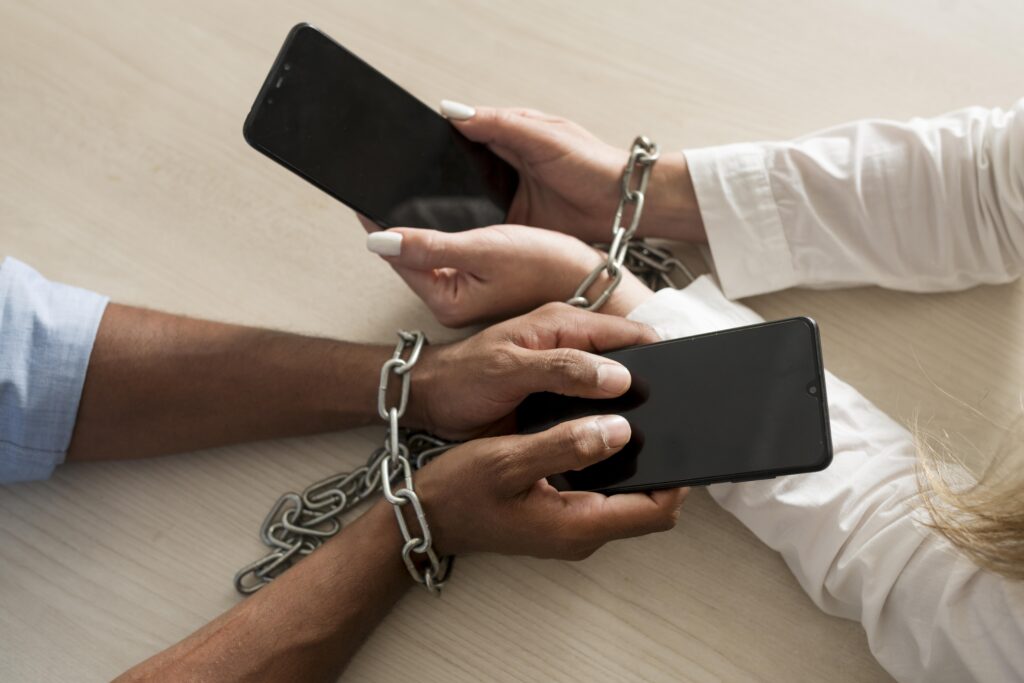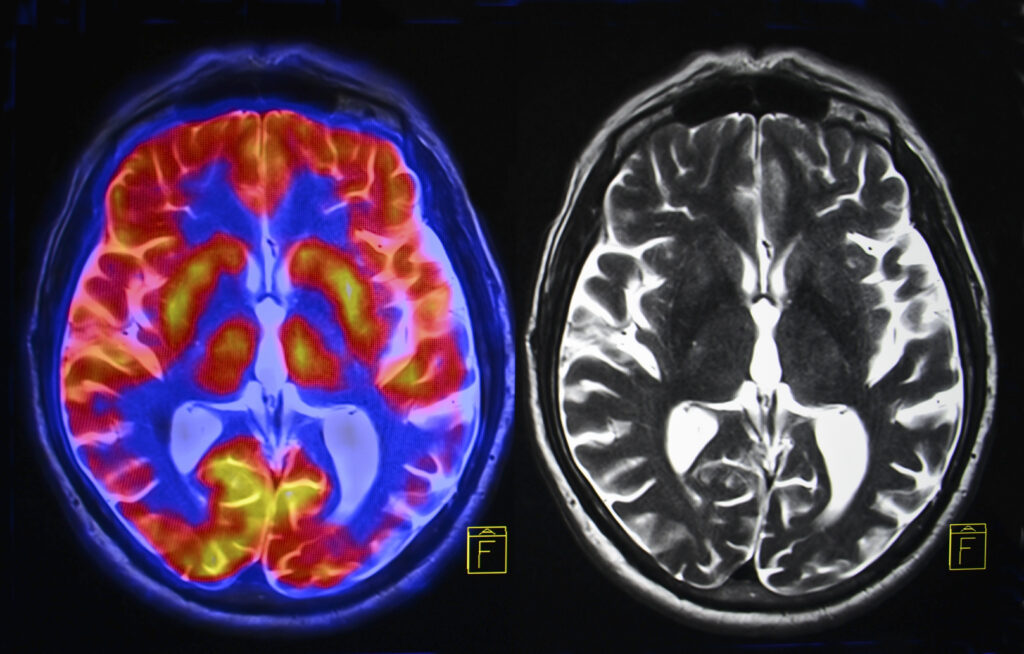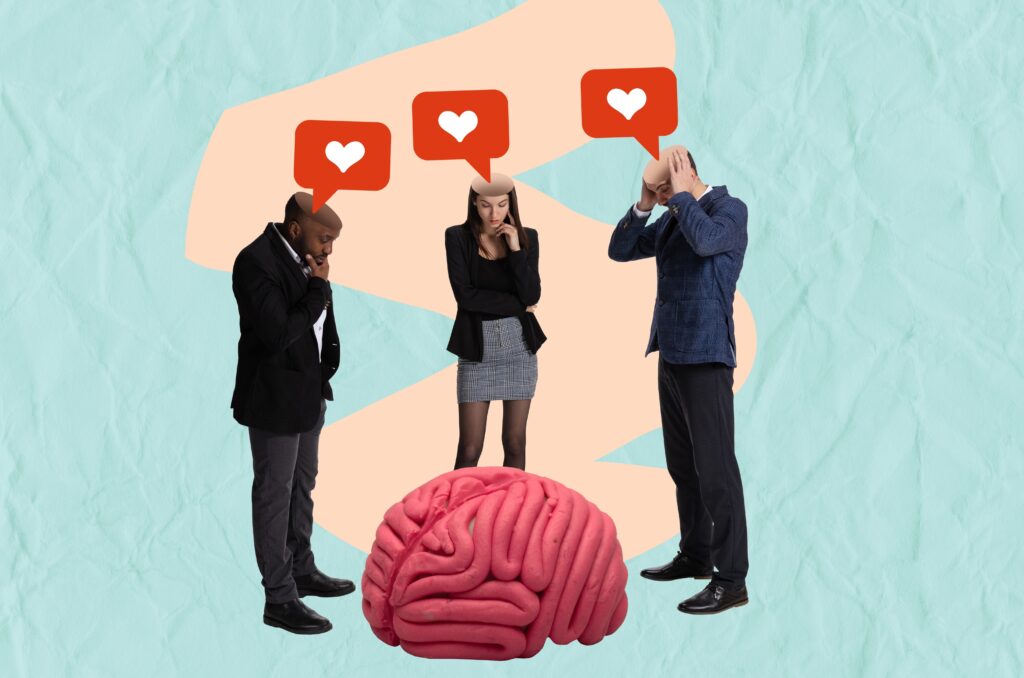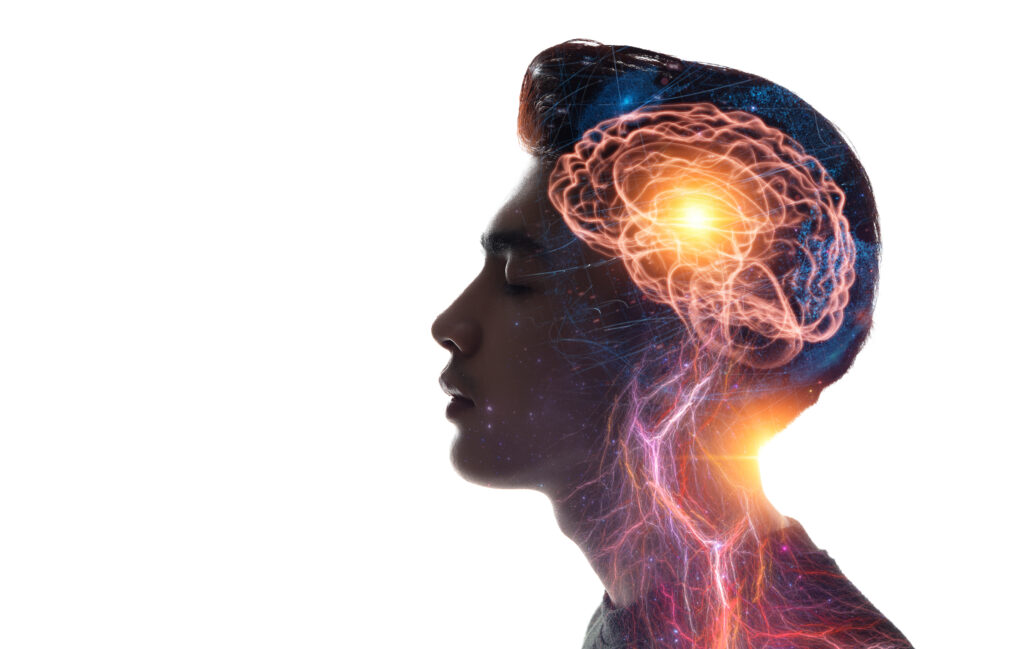Just 3 Days Without a Phone Changed These Key Brain Chemicals Linked to Addiction

For many, the first thing they reach for in the morning and the last thing they see at night is not a person, but a device.
The answer is the same for billions of people: that glowing little rectangle that holds their world. It serves as an alarm clock, a map, a library, and a link to others. It has become an extension of the mind and heart. This reality raises a critical question: what if that lifeline is also a leash? What if the most powerful tool for connection is silently disconnecting people from the world right in front of them, and from themselves?
This is no longer just a feeling or a philosophical question; it is becoming a matter of biology. Groundbreaking new research is revealing what happens to human brain chemistry when people are constantly plugged in—and, more importantly, what happens when they take a break.
How Your Phone Rewires Your Brain

Imagine a craving so deep you aren’t even aware of it. It’s a silent alarm, a pull from beneath the surface of your conscious thoughts. This isn’t science fiction; it’s what scientists are now seeing inside the human brain.
A landmark 2025 study published in Computers in Human Behavior provided a stunning look into this hidden mechanism. Researchers led by Mike M. Schmitgen took a group of young adults and put them on a 72-hour “phone diet,” restricting their use to only the essentials. Using fMRI scans, they looked at the participants’ brains before and after this short break.
The results were astonishing. After just three days of limited use, when participants were shown simple pictures of smartphones, key areas of their brains lit up. Specifically, the nucleus accumbens—the brain’s reward and motivation hub—and the anterior cingulate cortex, a region critical for self-control, showed heightened activity.

This pattern is powerfully similar to the neural signals seen in studies of substance addiction, suggesting the brain can react to phone cues much like it does to drugs or alcohol.
But here is the most profound and unsettling discovery: the participants didn’t report feeling any more craving. Their psychological tests showed no significant change in their mood or desires. Their brains were telling one story, while their conscious minds were telling another.
This reveals the ghost in the machine of modern dependency. The brain’s deep, automatic reward systems can be triggered by a simple image, sending out powerful signals for you to pick up your phone, all without you ever forming a conscious thought about it. It explains that all-too-familiar experience of “mindless scrolling,” where you find yourself lost in your phone without any clear reason or intention. It’s not just a lapse in willpower. It’s a conditioned response, a craving that can operate in the shadows of the mind.
The Hidden “Brain Drain” Costing You Your Focus

Beyond the invisible pull of craving, our phones wage a quieter war on our minds every single moment they are near. It’s a phenomenon researchers call “brain drain.”
A pivotal 2017 study by Ward and colleagues revealed that the mere presence of a smartphone—even if it’s off, even if it’s face down—depletes our precious cognitive resources. In their experiment, people performed tasks that required deep focus. The results were clear: the participants whose phones were in another room significantly outperformed those whose phones were on the desk beside them.
Think of it like trying to have a deep, meaningful conversation while a TV is blaring in the background. You can try to ignore it, and you might even succeed. But a part of your brain is constantly working overtime, actively fighting to filter out that distraction. That effort isn’t free. It consumes mental energy, leaving less of your focus and intelligence available for the task at hand.
This is the subtle cost of our hyper-connected lives. It’s not just about the time lost when we are actively distracted by a notification or a call. It’s about the constant, low-level mental tax we pay just for being in the same room as our devices. To achieve true focus, it’s not enough to just resist the temptation. We have to remove it entirely.
Remembering Life Before the Screen

To understand what has been lost, it helps to remember the world that existed before. It wasn’t a primitive world; it was just a different one, with a different rhythm. It was a world where boredom was not a crisis to be solved, but a doorway to be opened.
Before a universe of content was available at a moment’s notice, boredom was an unavoidable part of life. And in that space of doing nothing, something powerful happened. The mind would wander. It would daydream, create, and reflect. This was the birthplace of poetry, of new ideas, of tinkering in the garage. Boredom was the quiet taskmaster that pushed people to invent their own entertainment, forcing the muscle of imagination to grow stronger.
Conversations had a different texture, too. When people gathered, the goal was connection, not a contest of facts. A debate could simmer for hours, fueled by memory and opinion. Now, any dispute is settled in seconds by a quick search, often killing the conversation before it can truly breathe.
As MIT sociologist Sherry Turkle found in her research, the mere presence of a phone on a table between two people changes what they talk about and diminishes the empathic connection they feel. People instinctively steer clear of vulnerable, deep topics, knowing an interruption is just a notification away.
Navigating the world was also an internal skill, not an outsourced task. People used physical maps or, more often, the mental maps they had built in their own minds. Remembering phone numbers and directions wasn’t a chore; it was a basic cognitive exercise that kept the brain sharp. In offloading these simple tasks to our devices, we risk letting essential parts of our minds go dormant.
The Unexpected Gifts of Disconnecting

When the brain is allowed to rest from this constant digital stimulation, the benefits are not just neurological. They ripple out into every corner of life, bringing unexpected gifts.
One of the first things people notice is deeper, more restorative sleep. The blue light from our screens is notorious for suppressing melatonin, the hormone that tells our body it’s time to rest. When the phone is put away an hour or two before bed, the brain’s natural rhythm can take over, leading to better sleep and a more energized mind the next day.
A sense of calm also begins to return. Without the constant barrage of notifications, the body’s low-level stress response can finally stand down. People notice they are breathing more deeply, free from the shallow, anxious breathing pattern sometimes called “screen apnea” that happens when we are engrossed in our devices.
But perhaps the most profound gift is the return of presence. Personal accounts from people who have taken a digital detox often share a common, powerful observation. They find that simple daily tasks become calmer and more peaceful. With attention no longer divided between their family and their device, they are able to be fully present, which in turn creates more harmonious and connected interactions.
This is the trade-off we are offered. We can have the fragmented attention of the digital world, or we can have the wholehearted, peaceful presence of the real one.
Your 72-Hour Challenge to Reclaim Your Mind

The science is clear, and the stories are compelling. But information alone doesn’t create change. Experience does.
So this is not just a conclusion; it is an invitation. An invitation to run your own 72-hour experiment. This isn’t about punishment or a permanent rejection of technology. It is a simple, powerful act of self-discovery. It is a chance to feel what boredom is like again, to see who you are when you are not performing for a digital audience, and to observe the world without a screen in front of it.
What will you notice? What ideas will come to you in the quiet moments? How will your conversations change? How will your sleep improve?
There is only one way to find out.
The greatest connections are not measured in bars of signal strength, but in the depth of our presence with ourselves and with others. Technology should be a tool that serves our lives, not a force that shapes our brains without our permission. The power to choose is, and always will be, in your hands.
Source:
- Mike M. Schmitgen, Gudrun M. Henemann, Julian Koenig, Marie-Luise Otte, Jakob P. Rosero, Patrick Bach, Sophie H. Haage, Nadine D. Wolf, Robert C. Wolf, Effects of smartphone restriction on cue-related neural activity, Computers in Human Behavior, Volume 167, 2025, 108610, ISSN 0747-5632, https://doi.org/10.1016/j.chb.2025.108610.
Loading...

